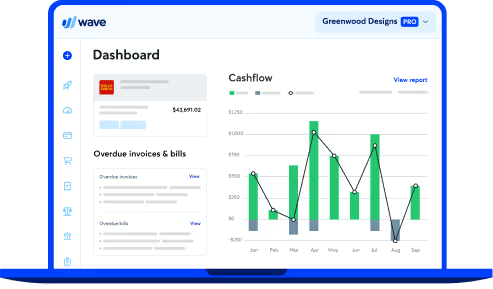
Five ways accounting helps your small business generate profit
This post by guest blogger Joshua Azran appears as part of our series Small Business 500.
Accounting systems are not simply meant for after-the-fact reporting to prepare the year-end Federal and State tax returns. Rather, an accounting system should proactively be used as a tool to manage the business. “Failing to plan is planning to fail”. Though one may achieve business success without adequate planning, to maximize opportunities and minimize risk, ongoing budgeting, planning, and analysis using an accounting system is a necessity for any business. The following are five ways that accounting helps your small business generate profit:
1. Apply Pareto Analysis, or the 80/20 rule
The Pareto Analysis provides that 80 percent of outcomes can be linked to 20 percent of causes. This means that 80 percent of your revenues may often be generated by 20 percent of your products or services, and that 20 percent of your customer base may command 80 percent of your business resources. The question is: Are these the same products and/or services, and/or customers? To know which is which, who is who, and what this all means for your business, you will first need an accounting system. In this example, with clear information you can focus your time and your resources to achieve the best product mix while most effectively deploying your staff.
2. Take advantage of trend analysis
Numerous macro or micro-economic factors affect businesses, such as a change in the price of raw materials or a shift in buying habits. Whatever your business may be, trends need to be analyzed in order to make the necessary adjustments to either minimize a potentially negative impact, or take advantage of a potential gain. For example, in a seasonal business, perhaps it makes sense to accumulate inventory when prices are low during the off-season to serve your clients during the busy season. Accounting allows your small business to find profitable trends and capitalize on them.
3. Profit from ratio analysis
Business ratios are not just complex calculations relegated to the halls of business schools or the towering skyscrapers of Wall Street. Ratios can tell a story, and most often this story is not obvious without an accounting system. Use the data from your accounting system to compare your business ratios to your own company or other similar sized companies; oftentimes information about other companies is available online (such as the United States Census Bureau) or through various industry groups. Is your net profit higher because you have fewer expenses, or have you simply been able to charge a higher margin than your industry average? Analyze your accounting data to determine if your small business can still maintain the healthy margin while reducing expenses to industry standard levels and benefit from a supersized profit.
4. Make sound management decisions with an accounting system
When making a decision, your business benefits when information is not exclusively analyzed according to a Generally Accepted Accounting Principles (GAAP) or income tax reporting methodology. For example, in a scenario using GAAP reporting only, if Product A has a Gross Margin of 75 percent, and Product B has a Gross Margin of 25 percent, GAAP may indicate that you will probably need to discontinue Product B. However, if you have a full set of financial data from your accounting system, you will be able to apply alternative costing models for management reporting to determine whether the overhead being covered by the sales of Product B justifies the smaller margin, or if Product A is being held back by a lack of funds due to the slower sales of Product B.
5. Facilitate accuracy, reliability, consistency and ease of reporting
The best spreadsheets, manual ledgers, and other financial tools cannot ensure the accuracy, reliability, and consistency of a traditional double-entry accounting system. They also cannot come close to the ease of reporting double-entry accounting facilitates. What I recommend for small businesses is a traditional double-entry accounting system that is complete in its reporting capabilities. Whether you never intend to have more than a single customer, or if you intend to eventually go public and require a certified audit at some future date, accurate and reliable financial reporting data with consistently applied rules will remain the backbone of any successful business entity.

Joshua V. Azran CPA/ABV/CFF, CMA, CGMA, CFE is a Partner and Owner of Azran Financial APC, a Certified Public Accounting & Advisory firm with locations in Los Angeles, California. Azran Financial APC provides Accounting, Audit, Tax, and Advisory services to businesses and individuals.
Visit the Azran Financial website

(and create unique links with checkouts)
*While subscribed to Wave’s Pro Plan, get 2.9% + $0 (Visa, Mastercard, Discover) and 3.4% + $0 (Amex) per transaction for the first 10 transactions of each month of your subscription, then 2.9% + $0.60 (Visa, Mastercard, Discover) and 3.4% + $0.60 (Amex) per transaction. Discover processing is only available to US customers. See full terms and conditions for the US and Canada. See Wave’s Terms of Service for more information.
The information and tips shared on this blog are meant to be used as learning and personal development tools as you launch, run and grow your business. While a good place to start, these articles should not take the place of personalized advice from professionals. As our lawyers would say: “All content on Wave’s blog is intended for informational purposes only. It should not be considered legal or financial advice.” Additionally, Wave is the legal copyright holder of all materials on the blog, and others cannot re-use or publish it without our written consent.


























